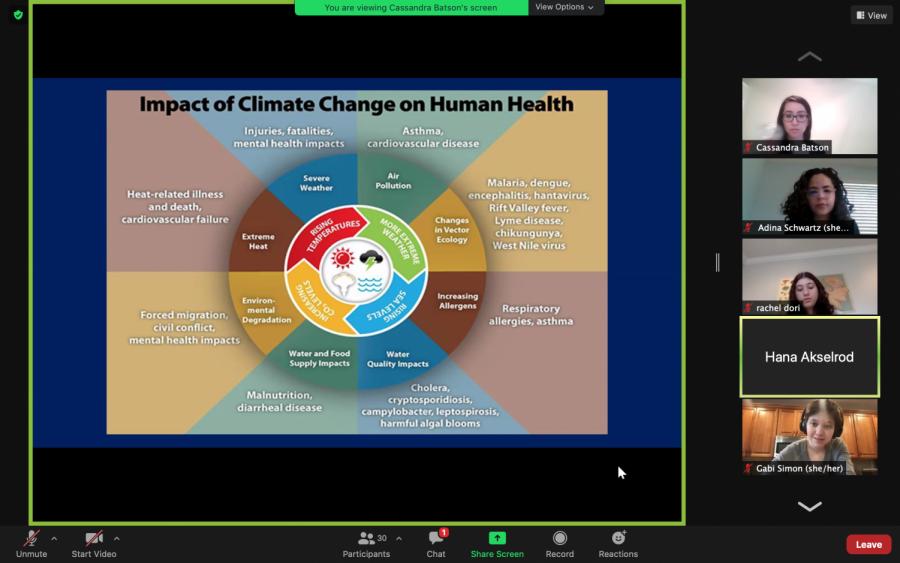STEM guest speaker gives students a new outlook on climate change
Guest speaker Dr. Akselrod presented a powerpoint about climate change on Zoom.
March 5, 2021
Dr. Hana Akselrod, Assistant Professor of Medicine in the Division of Infectious Disease at the George Washington School of Medicine and Health Sciences, led a Zoom meeting Monday, March 1. The meeting lasted 45 minutes and served as an info session that informed students on the causes and effects of climate change on the environment. The presentation was arranged by STEM Center Fellows and juniors Rachel Dori and Adina Schwartz.
While planning the event, Dori and Schwartz wanted to focus on an aspect of STEM that is a topic most students are unfamiliar with.
“We wanted to do something that you can’t really get just with the curriculum at JDS. [Education on climate change is] something that we don’t really do at JDS,” Schwartz said.
Everyone who entered the zoom meeting was also entered into a raffle to win a $10 Amazon gift card. Schwartz and Dori came up with this idea to encourage more students to join so that more students learn about climate change.
“We were looking for someone who was really well informed on the subject, but also someone who could be engaging for high school students, especially considering that the event was happening during their lunch period,” Schwartz said.
Dr. Akselrod spoke about climate change and the impacts it has on human health and equity in addition to the environment.
“We thought that it would especially appeal to the JDS community seeing as a lot of students have become much more involved in activism and social justice since the height of the BLM movement last summer,” Dori said.
Dr. Askelrod took a different approach to address the effects of climate change. She focused on the medical and social impact that climate change will have on humanity as opposed to the mere environmental impact.
Dr. Akselord suggested a list of steps to be taken that would help to drastically reduce the negative impacts humans have on the earth, such as building more bike lanes, creating more urban green spaces and creating more family planning services to reduce the number of unplanned pregnancies to lower the population.
“[Dr. Askelrod’s] talk was very eye-opening for me because it introduced me to a lot of ideas I hadn’t previously considered,” Dori said.







